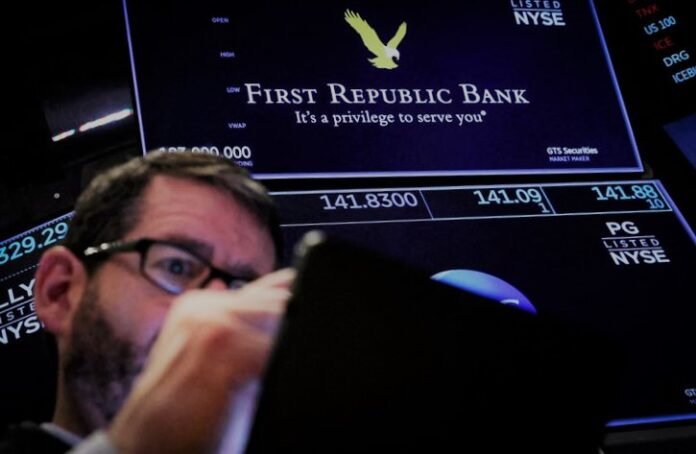Short Sellers’ Role in U.S. Bank Crisis: Guardians or Profiteers?
Following Silicon Valley Bank’s (SVB) spectacular downfall, First Republic Bank’s stock witnessed a precipitous descent, raising insiders’ anxiety. They questioned whether short sellers, whose wagers on First Republic’s stock amplified amidst the nosedive, were exacerbating the tribulations.
Turmoil and Short Interest Growth
The banking sector’s pandemonium saw short interest in First Republic swell, with variations in the extent of increase. Initially minuscule, the percentage of shares procured for short bets ultimately reached a staggering 7% to 37% by the close of March. Surpassing the 3%-5% average for all stocks, a parallel trend surfaced for SVB and Signature Bank, as short interest escalated alongside their stock’s decline.
Subterranean Struggles
Interest Rates & Asset Devaluation
U.S. regional banks grappled with adversity last year, owing to swiftly surging interest rates that eroded the worth of long-term assets like home loans and government bonds. The exposure to cryptocurrency and technology companies left some lenders reeling.
The Cataclysmic Spiral
Last month, a depositor exodus spiraled uncontrollably, leading regional lenders’ shares to nosedive.
Short Sellers: Watchdogs or Opportunists?
The debate surrounding short sellers’ contributions to this downward vortex remains fervid. They are perceived as either market sentinels or avaricious investors capitalizing on the misfortunes of others. In this banking crisis, they could be both.
Short Selling: A Divisive Tactic
Short selling has its share of detractors, with some accusing it of amplifying the 2008 financial crisis. Yet, certain renowned short sellers garnered acclaim for their prescient prognostications of the U.S. housing market.
The crisis of faith in U.S. regional banks commenced with SVB shares’ plunge, culminating in a widespread depositor exodus. The bank’s failure reverberated through other regional lenders, causing Signature Bank to collapse and First Republic’s market value to plummet by over 80% by mid-March.
Prior to the crisis, some short sellers had bet against regional banks. Despite this, short positions in most regional banks remained relatively low pre-crisis and increased only marginally during March.
Short Sellers’ Windfall
Irrespective of their role in the crisis, short sellers reaped rewards. Total short bets in U.S. regional banks garnered $4.76 billion in March, a 35% increase on an average short interest of $13.4 billion. The discourse on short sellers’ function in the U.S. bank crisis endures, with perspectives oscillating between heroism and villainy.











